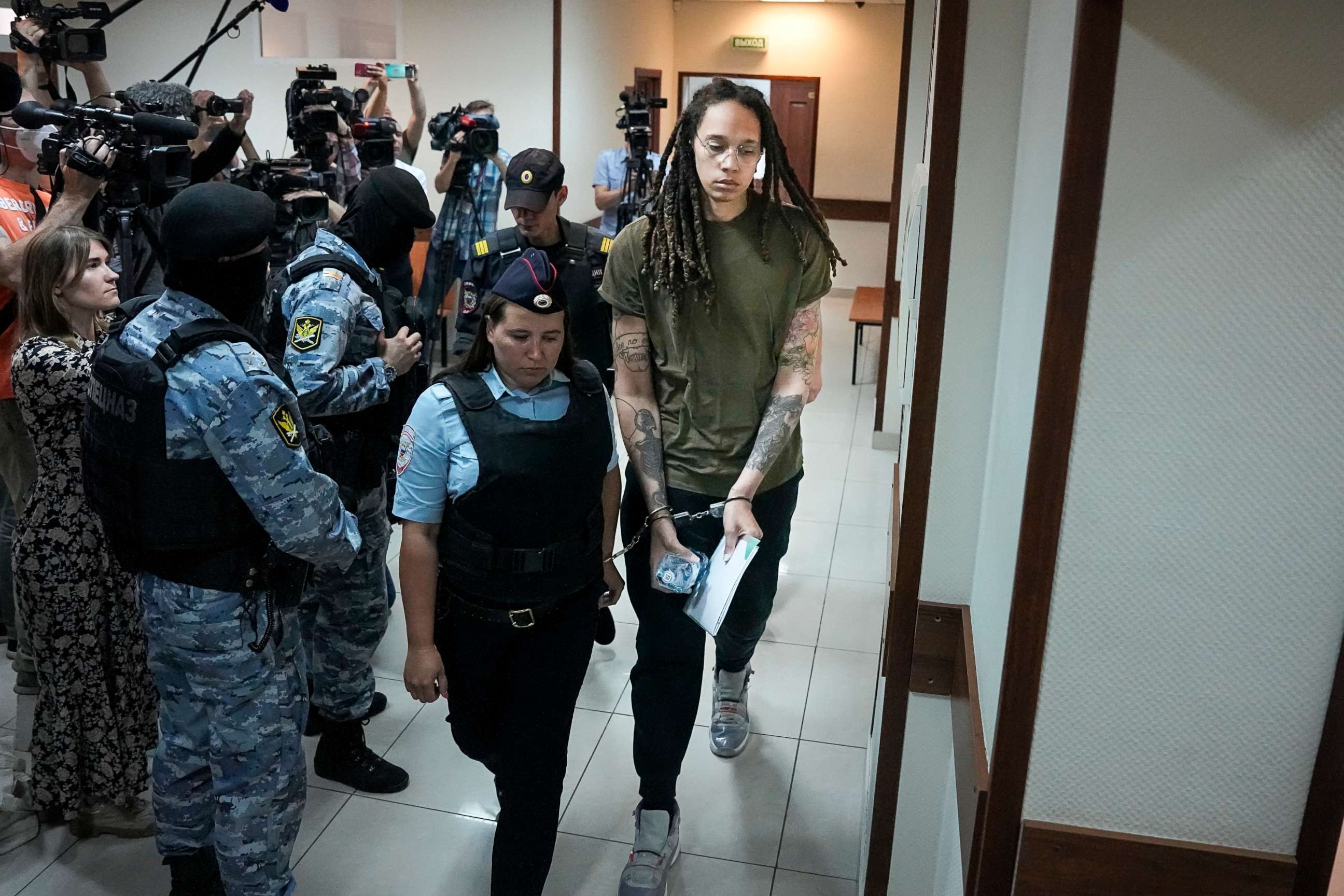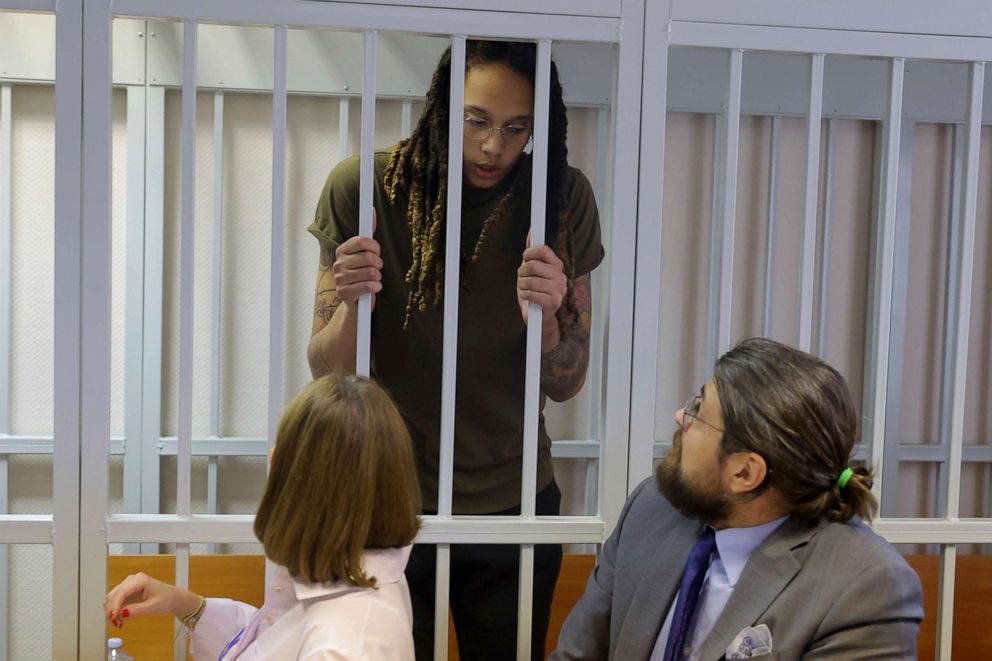Brittney Griner returns to Russian court as US floats proposal to secure her release
The WNBA star has been held on drug charges in Russia since February.
American basketball star Brittney Griner was back in court for her drug possession trial in Russia on Tuesday, as the United States floats a proposal to secure her release.
Griner, a 31-year-old Houston native who plays professional basketball for the Phoenix Mercury, was returning to Russia for the WNBA's offseason when she was detained at Sheremetyevo International Airport in the Moscow suburb of Khimki on Feb. 17, after being accused of having vape cartridges containing hashish oil, which is illegal in the country. She pleaded guilty to drug charges in court last month, saying the cartridges were in her luggage by mistake and that she had no "intention" of breaking Russian law. If convicted, she faces up to 10 years in prison and also has a right to an appeal.
Griner, who had last appeared in court on July 27, again held up photographs of her loved ones as she was escorted into the defendant's cage where she remained behind bars for Tuesday's proceedings at a Khimki courthouse. An employee who works at the Russian state lab where Griner's vape cartridges were tested took the stand, while defense attorneys called into question the testing methods and the competency of the staff conducting the tests.
Last week, in a sharp reversal, U.S. Secretary of State Antony Blinken announced that he will hold a call with Russian Foreign Minister Sergey Lavrov "in the coming days" to discuss securing the freedom of Griner and former U.S. Marine Paul Whelan, who has been detained in Russia since late 2018.
"[They] have been wrongly detained and must be allowed to come home," Blinken told reporters in Washington, D.C, on July 27. "We put a substantial proposal on the table weeks ago to facilitate their release. Our governments have communicated repeatedly and directly on that proposal, and I'll use the conversation to follow up personally and I hope [to] move us toward a resolution."

Two days later, Blinken told reporters that he had a "frank and direct conversation" with Lavrov about a U.S. proposal to exchange convicted arms dealer Viktor Bout in return for Griner and Whelan's freedom.
"I pressed the Kremlin to accept the substantial proposal that we put forth on the release of Paul Whelan and Brittney Griner," Blinken said. "I'm not going to characterize his responses and I can't give you an assessment of whether I think things are more or less likely, but it was important that [he] hear directly from me on that."
During a press conference in Moscow on July 28, Russian Ministry of Foreign Affairs spokeswoman Maria Vladimirovna Zakharova confirmed that "the issue of mutual exchange of Russian and American citizens, staying in places of detention on the territory of the two countries, was discussed at one time by the presidents of Russia and the United States," but "a concrete result has not yet been achieved."
Calls to free Griner and Whelan escalated following the release of U.S. Marine veteran Trevor Reed, who was imprisoned in Russia for nearly three years and was freed was freed on April 27 as part of a prisoner swap.
The U.S. Department of State has classified both Whelan and Griner as "wrongfully detained."
Russia's invasion of neighboring Ukraine began one week after Griner was detained, and some officials have expressed concern that Americans jailed in Russia could be used as leverage in the ongoing war.

Last month, Griner's legal team told ABC News in a statement last that her guilty plea was recommended by her Russian attorneys.
Griner took the stand on July 27, telling the court she did not mean to violate Russian law when bringing vape cartridges into the country.
She testified that she has permission to use medical cannabis and used a certificate to buy it in the U.S. Two weeks earlier, one of Griner's attorneys presented a letter from an American doctor in court, giving her permission to use cannabis to reduce chronic pain.
Griner also said she did not mean to leave the cartridges in her bag, but that she was in a hurry and was stressed after recovering from COVID-19 that month. The WNBA star said she was aware that the U.S. had warned Americans about traveling to Russia, but she didn't want to let her team down in the playoffs.
ABC News' Max Karmen, Alexander Mallin, Benjamin Siegel, Joseph Simonetti and Tanya Stukalova contributed to this report.




